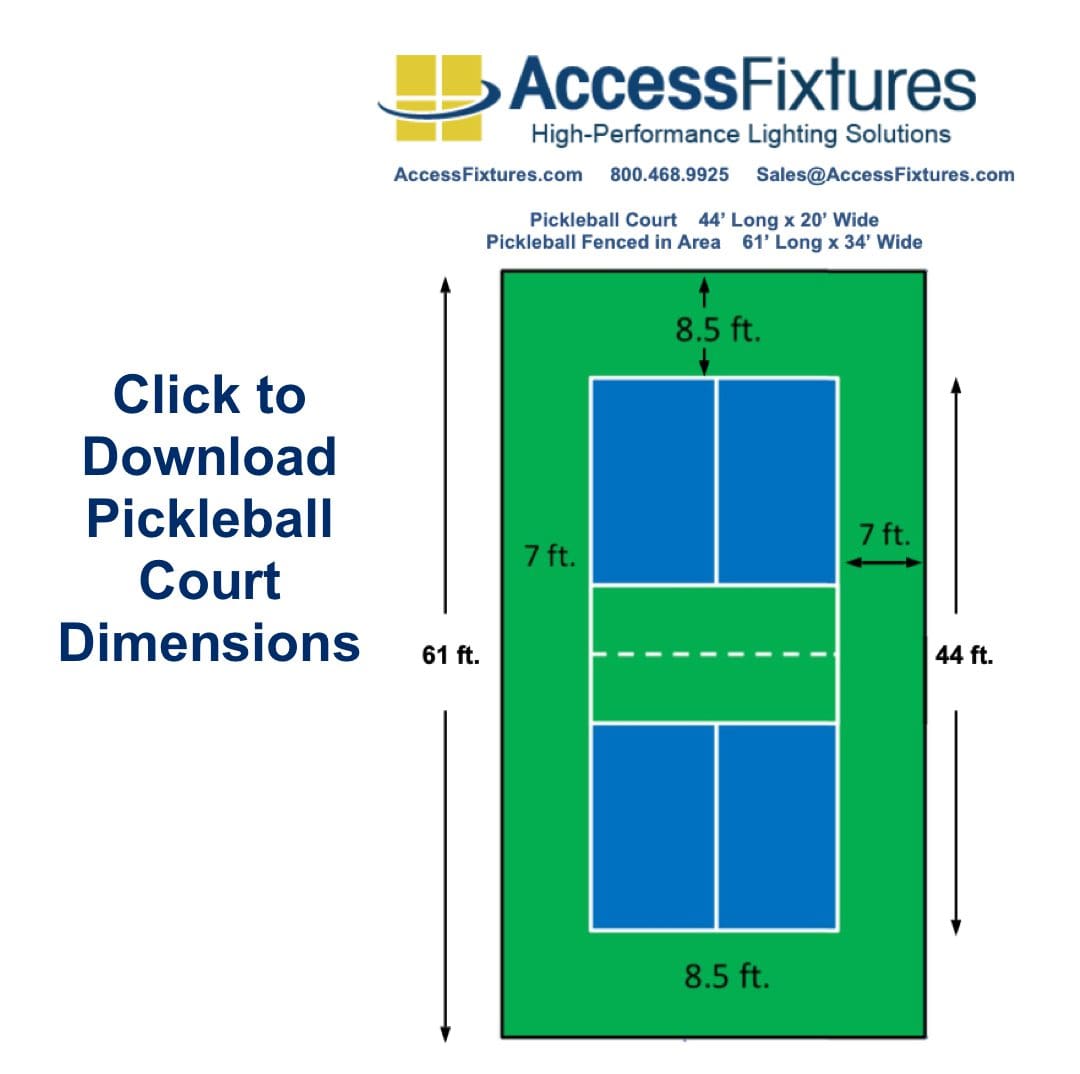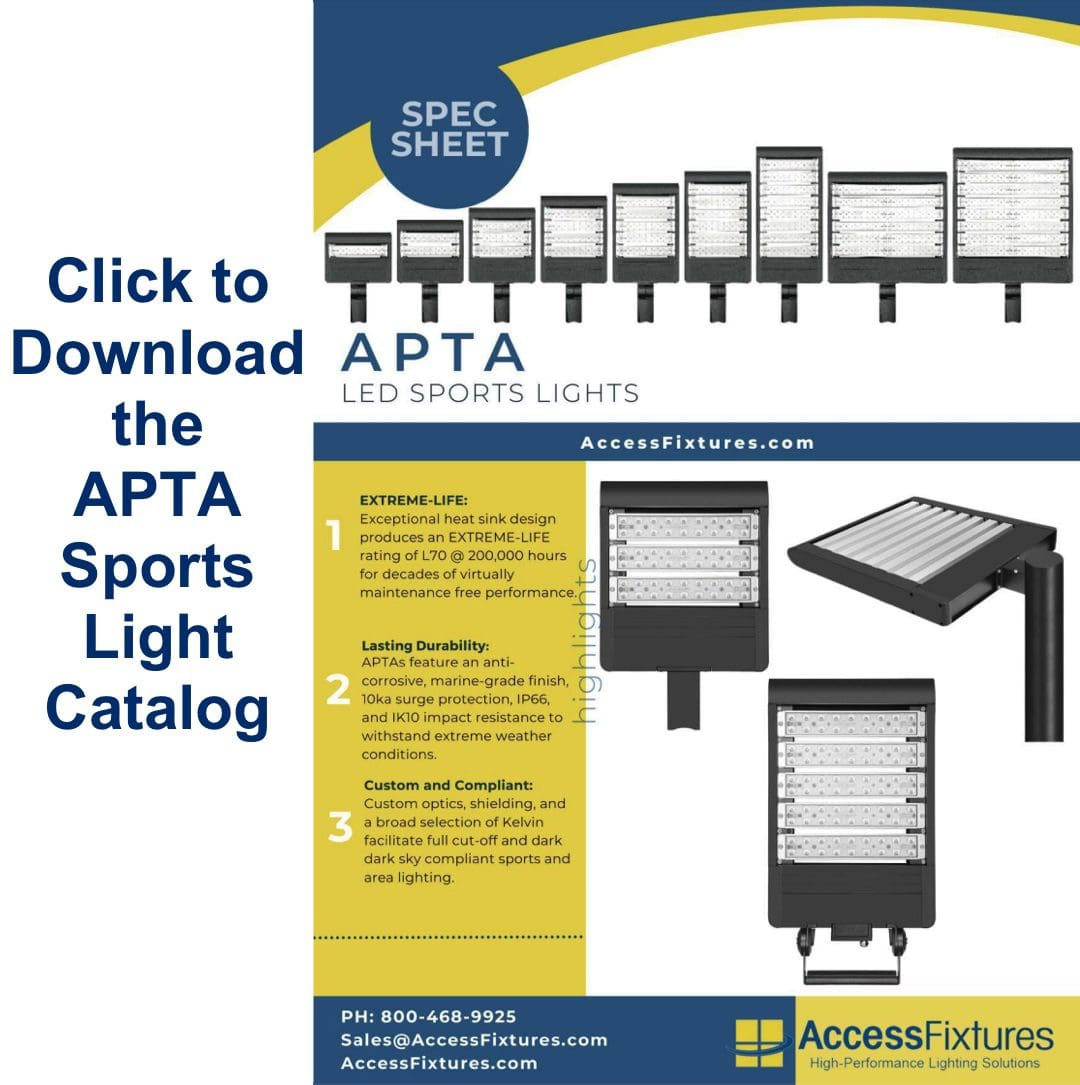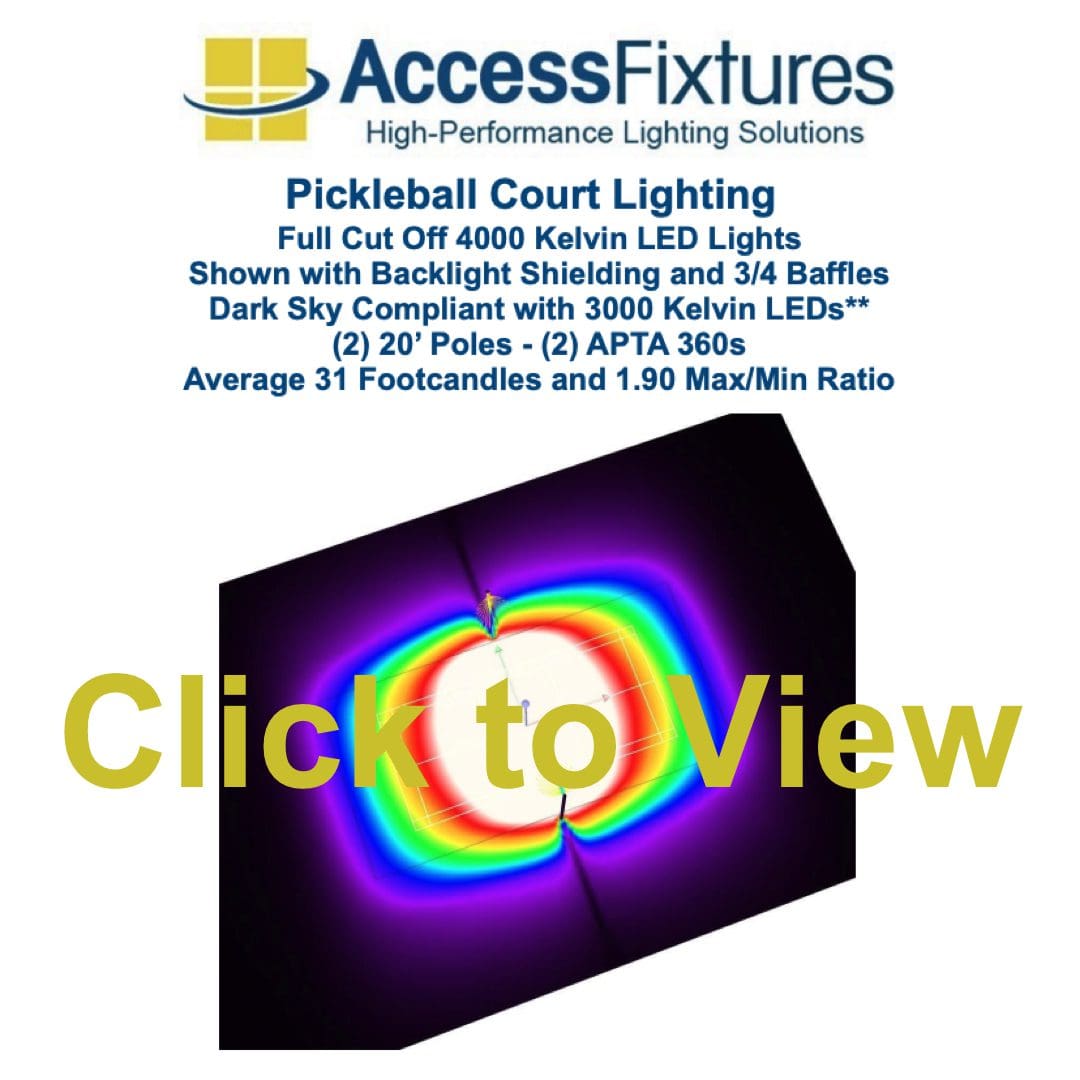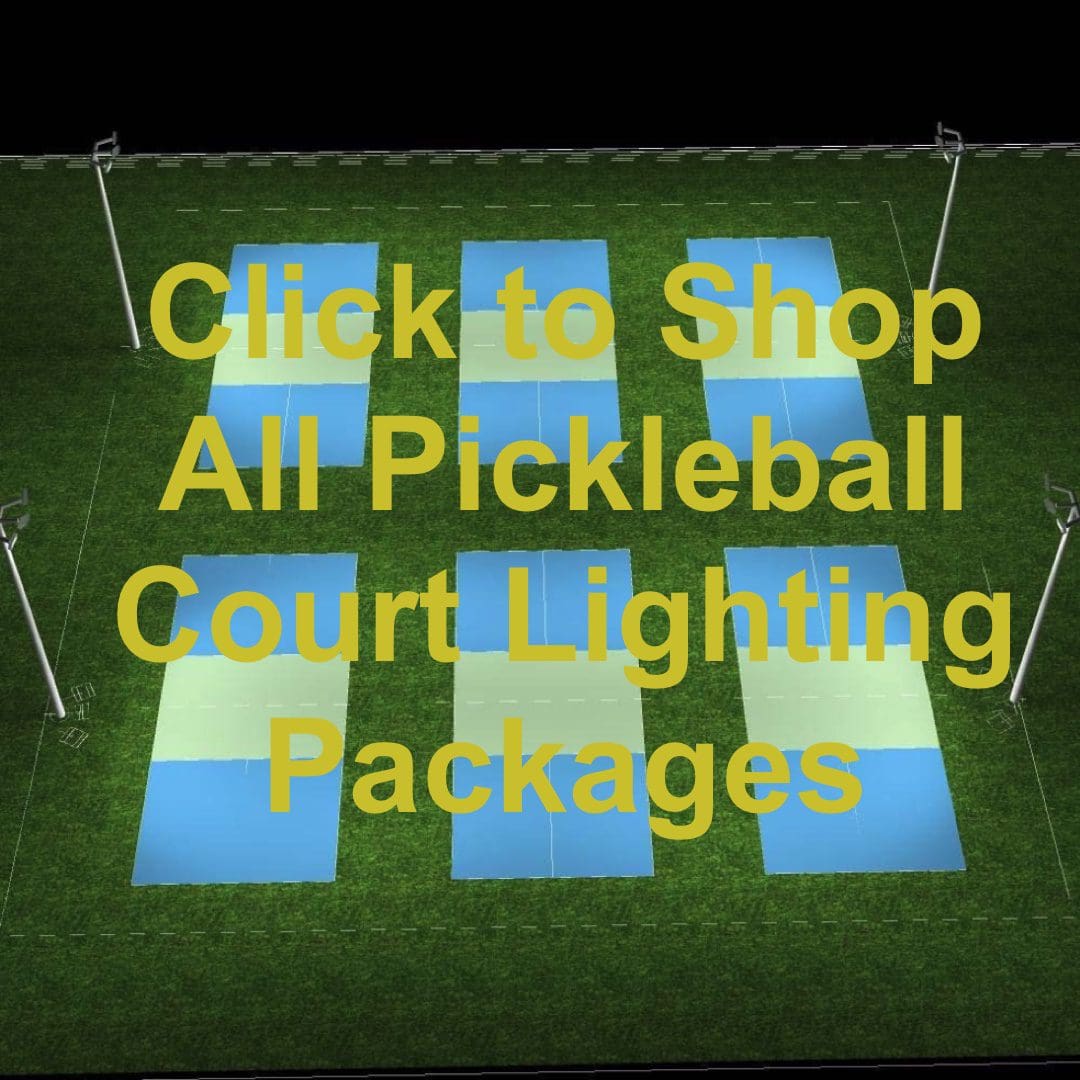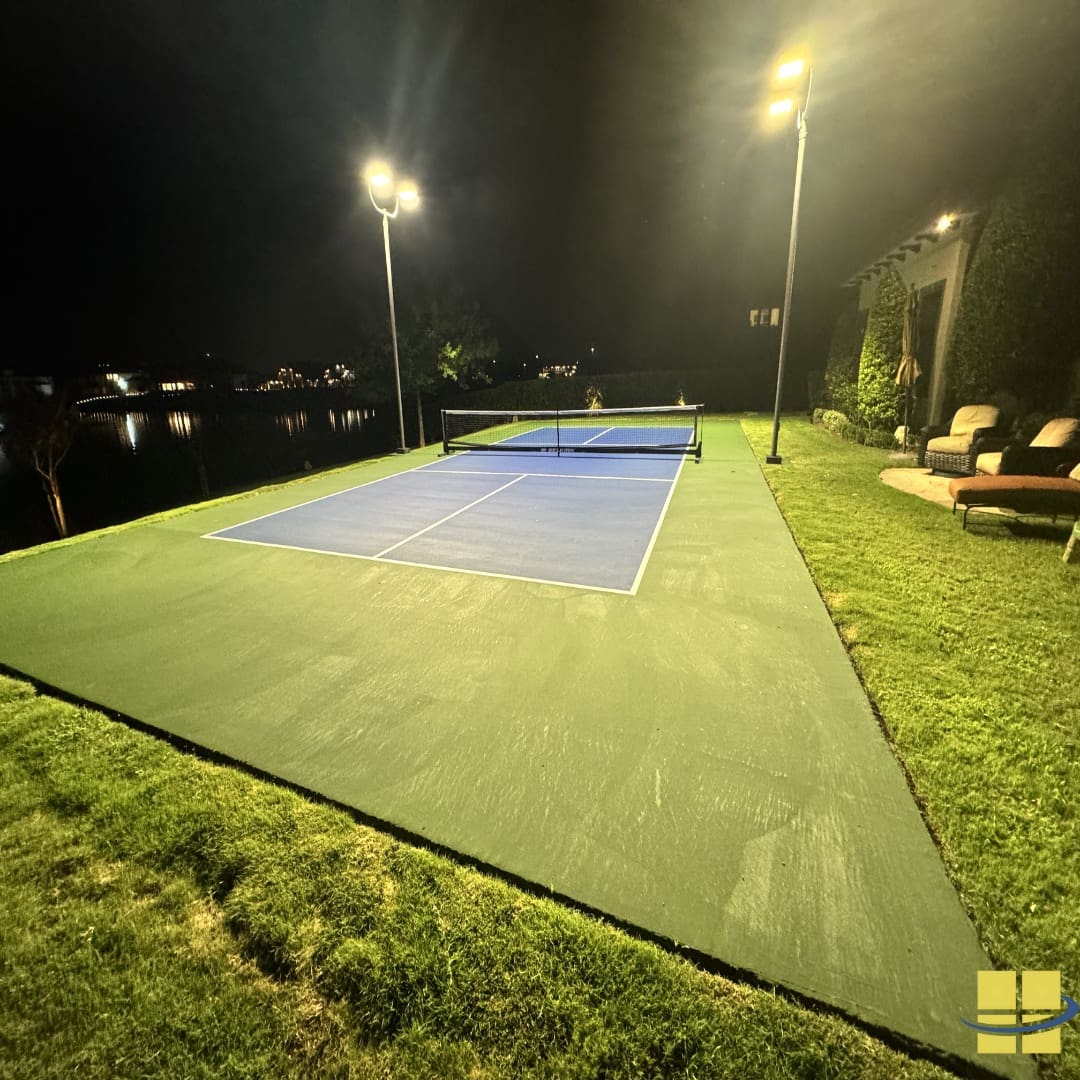Pickleball Court Lighting: A Growing Phenomenon
Pickleball is a sports phenomenon sweeping the nation. Similar to tennis, badminton, and racquetball, pickleball is attracting players of all ages to its courts. The racquet sport originated in the 1960s but has exploded in popularity in recent years due to Baby Boomers embracing the sport. Pickleball courts are being built in country clubs, city parks, apartment/condominium complexes, community centers, YMCAs, and more. As more and more people discover pickleball, pickleball clubs are growing in number too. According to the USA Pickleball Association, “the number of places to play has more than doubled since 2010.” Pickleball is especially popular on the East Coast, West Coast, and the Great Lakes areas, and since pickleball court lighting increases the court time available, many courts are being built with lighting or having lights added to existing courts.
Key Takeaways
-
- Growing Popularity: Pickleball is booming, especially among Baby Boomers, leading to more courts being built nationwide with an increasing need for proper lighting.
- Lighting Standards: Courts require 20-foot high poles with 30 footcandles of light, and a max/min ratio of 2.0 or less to ensure visibility, and must comply with local ordinances on light pollution and pole height.
- Advanced LED Solutions: Modern LED lights, like APTA sports lights, meet official standards and local regulations, offering durability, easy maintenance, and compliance with dark sky and light trespass requirements.
Pickleball Court Standards
Pickleball court standards are crucial to ensure a safe and enjoyable playing experience. The USA Pickleball Association dictates the official rules of the game and the court dimensions to be officially recognized. A standard pickleball court is 20 feet by 44 feet for singles and doubles, with a minimum total playing surface of 30 feet by 60 feet. The recommended total playing surface is 34 feet by 64 feet. When it comes to lighting, pickleball courts require illumination to be supplied by luminaires mounted on 20-foot high poles, delivering an average of 30 footcandles (fc). The max/min ratio of pickleball court lighting is 2.0 or less, ensuring extremely even light that enhances visibility. This link has information on building a pickleball court.
Pickleball Court Lighting Requirements
Pickleball courts standards require illumination be supplied by luminaires mounted on twenty-foot high poles that deliver an average of 30 footcandles (fc), and a max/min ratio of 2.0 or less. Mounting the luminaires on twenty-foot poles enables pickleball players to see the ball when it goes up into a high arc. A shorter pole would cause the ball to disappear when it goes above the lights and reappear someplace else as it returns to the court. 30 fc is the light level required for players to see the ball, even as it moves at a high speed. Lower-level lighting would make visibility difficult.
A max/min ratio is the highest area of light on the court divided by the lowest area of light on the court. It is a measure of how even the light is. While other sports typically set the maximum max/min ratio at 3.0, most other sports are played on a larger field or court. Pickleball has a max/min ratio of 2.0. A 2.0 max/min ratio is extremely even light which enhances visibility. The ball will not be obscured by a dark area and players eyes will not need to adjust to varying light levels. A photometric study can be conducted to ensure that the lighting design meets the required max/min ratio and provides even light distribution across the court. Ensuring the lighting system operates effectively with a well-designed control system, including scheduling, photocells, and motion sensors, is crucial for optimizing energy use and prolonging the lifespan of the lighting system.
Pickleball Court Lighting, Lighting Ordinance, and Building Requirements
Meeting pickleball court lighting requirements is one objective. Meeting local lighting ordinances is another thing. Many communities require that pickleball court lighting meets standards such as being full cutoff, dark sky compliant, partially shielded, fully shielded, limit light trespass, having a limited pole height, or having poles that meet wind standards of as much as 190+ MPH. The following is a breakout of each and what it means.
Full Cutoff Pickleball Court Lighting
Many pickleball court lighting designs project the light by aiming/tilting the light fixtures. With full cutoff pickleball court lighting, the light fixtures are mounted horizontally to the court surface. This limits or eliminates up-light thus protecting the dark sky and environment. The optics in the advanced LED light fixtures direct the light output so tilting and aiming are not required. The result is effective pickleball court lighting without disrupting views of the heavens and without disrupting nature.
Dark Sky Compliant Pickleball Court Lighting
Dark Sky lighting requirements are becoming much more common. Dark sky compliant pickleball court lighting starts with full cutoff light fixtures. While most sports lighting is 4000 Kelvin or 5000 Kelvin, to be dark sky compliant the LEDs have to be 3000 Kelvin or lower. While 3000 Kelvin is a warmer color of light, the lighting can still be effective for pickleball and it will meet most dark sky compliant ordinances. Please note that dark sky ordinances can vary, such as requiring 2200 Kelvin LEDs, so always check the lighting ordinance for your community.
Partial Shielding, Full Shielding, Back Light Shielding, and Individual LED Shielding for Pickleball Courts
One form of light pollution is seeing the light source from off of the property or location that is being illuminated. This can be reduced or eliminated by using a specific type of shielding or a combination of shielding. Partial shielding, also known as a 3/4 baffle is typically a baffle that covers 3 sides of the light fixture. Full shielding is similar, but the shielding goes all the way around the light source. It is like a box under the light fixture. Backlight shielding is a very small shield that goes behind each LED, limiting light behind the light fixture and obscuring the light source from behind. Individual LED shielding is the newest form of shielding. Individual LED shielding is little boxes that go around the LEDs. A view of the LEDs is obscured while the size of the shielding minimizes the effect on light distribution.
Pickleball Court Lighting and Light Trespass
Light trespass is typically measured by how many footcandles are emitted outside of the area scheduled to be illuminated or the footcandles emitted over the property line. Depending on the community, the lighting ordinances can restrict the latter to levels as low as 0.05fc. Appropriate LED optics and different forms of shielding reduce or eliminate light trespass in most instances. A photometric study can model the light emitted and test for light trespass.
Pickleball Court Lighting and Pole Height
The USA Pickleball Association states that lights should be mounted on 20′ tall poles, but if your local lighting ordinance requires a mounting height of lower than 15 feet, which pole height standard do you think will be the determining factor? Obviously, you have to meet the local lighting ordinance or go without lighting. Today, using the advanced optics in Access Fixtures sports lights like the APTA, Access Fixtures can meet all USA Pickleball Association standards with a mounting height of 14 feet. This enables homeowners, HOAs, etc. to have pickleball lighting without 20′ poles. The only drawback is if a pickleball ball pops up over 14′ high. Since that doesn’t happen a lot in pickleball, the tradeoff is worthwhile.
Pickleball Court Light Poles and Windspeed
Building ordinances require that pickleball court poles meet the windspeed required to survive hurricanes, typhoons, and other assorted meteorological events. This requires that the sports lighting have a low EPA to minimize the walls and gauge of a pole, while the pole is able to withstand the weather event. Access Fixtures has designed and engineered poles that can withstand the 180+ mph requirements of part of Florida and even the 190+ mph requirements of Guam. Materials also matter. Metal poles located near or by the ocean can rust. To increase the life of the poles, the poles should either have an extra protective coating, be galvanized, or the pole should be manufactured with a fiberglass composite.
Benefits of LED Lighting for Pickleball Courts
LED lighting offers numerous benefits for pickleball courts. One of the most significant advantages is energy efficiency, with LED lights using up to 75% less energy than traditional metal halide lights. LED lights also have a longer lifespan, lasting up to 200,000 hours or more, compared to 2,000-3,000 hours for metal halide lights. Additionally, LED lights are more durable and resistant to shock and vibration, making them ideal for outdoor pickleball courts. They are also easier to install and maintain than metal halide lights, reducing the need for frequent replacements and repairs.
Choosing the Right LED Lighting for Pickleball Courts
When it comes to choosing the right LED lighting for pickleball courts, several factors need to be considered to ensure optimal performance and player satisfaction. The first step is to determine the specific lighting illumination levels required for your court. According to the USA Pickleball Association, outdoor courts should have a minimum of 30 footcandles (fc), while indoor courts require 50 fc to ensure adequate visibility.
Next, consider the color temperature of the light. For commercial or public installations, a cooler color temperature ranging from 5000K to 6500K is recommended. This range provides a bright, daylight-like quality that enhances visibility and reduces eye strain. For residential installations, a warmer color temperature between 3000K and 4000K is more suitable, offering a softer, more comfortable light.
The type of light fixtures and their mounting height are also crucial. For outdoor pickleball courts, pole-mounted fixtures are ideal as they provide broad coverage and can be positioned to minimize shadows. Indoor courts, on the other hand, benefit from ceiling-mounted fixtures that ensure even light distribution across the playing surface. Look for fixtures with high lumen output and a wide beam angle to achieve uniform light distribution.
Energy efficiency and cost savings are significant advantages of LED lighting. LED lights can reduce energy consumption by up to 75% compared to traditional metal halide lights, leading to substantial cost savings over time. By carefully selecting the right LED lighting, you can enhance the playing experience while also benefiting from long-term energy and maintenance savings.
Lighting Solutions for Pickleball Courts
Lighting solutions for pickleball courts can vary based on the specific needs and layout of the court. For outdoor courts, LED lights with advanced optics are highly effective. These lights can be mounted on poles or around the court’s perimeter, directing light towards the center to ensure even illumination. This setup minimizes shadows and provides consistent lighting, crucial for fast-paced games.
Indoor courts require a different approach. Ceiling-mounted LED lights are ideal for these environments, offering uniform light distribution that covers the entire playing area. The key is to choose fixtures that provide sufficient brightness without causing glare, ensuring players can see the ball clearly at all times.
A well-designed control system is essential for optimizing the performance and efficiency of your lighting system. Implementing a combination of scheduling, photocells, and motion sensors can significantly reduce energy consumption. Scheduling allows the lights to operate only during designated times, while photocells adjust the lighting based on natural light levels. Motion sensors ensure the lights are only on when the court is in use, further enhancing energy efficiency and prolonging the lifespan of the lighting system.
By selecting the right lighting solutions and control systems, you can create a well-lit, energy-efficient pickleball court that meets both player needs and community standards.
Installation and Maintenance
Installing and maintaining LED lighting for pickleball courts requires careful planning and execution to ensure optimal performance and longevity. The first step is to have the lighting system designed and installed by a qualified professional. This ensures that the system meets all necessary standards and provides the best possible lighting for the court.
Maintenance of LED lights is generally minimal, but periodic visual inspections are recommended to ensure all fixtures are functioning correctly. LED lights are known for their durability and long lifespan, often lasting up to 200,000 hours. However, it’s essential to check for any signs of wear or damage and address them promptly to maintain optimal performance.
The installation height and angle of the fixtures are critical factors in achieving even light distribution. For outdoor courts, fixtures should be mounted at a height of at least 20 feet. This height minimizes glare and ensures that the entire playing surface is evenly lit. For indoor courts, the fixtures should be mounted at a height that provides uniform light distribution without causing shadows or dark spots.
By following these guidelines, you can ensure that your pickleball court lighting system is effective, energy-efficient, and cost-saving. Proper installation and maintenance will enhance the playing experience and ensure the longevity of your lighting investment.
Using APTA Sports Lights to Illuminate Your Pickleball Court
Access Fixtures’ most popular LED sports light is APTA. APTAs meet USA Pickleball Association requirements, and with multiple optics and options can meet dark sky requirements and most if not all light trespass requirements.
APTA LED sports lights are designed and manufactured to provide powerful and reliable lighting that meets USA Pickleball Association standards as well as your community’s lighting requirements. With superior optics, spill light control design, lumen-per-watt output (LPW) of up to 160, and low weight/low effective projection area (EPA), APTAs are designed to provide long-lasting, superior quality, anti-glare light for your pickleball court lighting.
- EXTREME-LIFE: Exceptional heat sink design produces an EXTREME-LIFE rating of L70 @ 200,000 hours for years of virtually maintenance-free performance
- Lasting Durability: APTAs feature an anti-corrosive, marine-grade finish, 10ka surge protection, and IP66 and IK10 impact resistance to withstand extreme weather conditions
- Field Repairable: APTAs have a fully modular construction and are field repairable. All parts can be easily replaced in the field. APTAs come with a 5-year warranty and a 10-year warranty is optional.
Click to Download the APTA Sports Light Catalog
Click to View Pickleball Court Lighting Packages
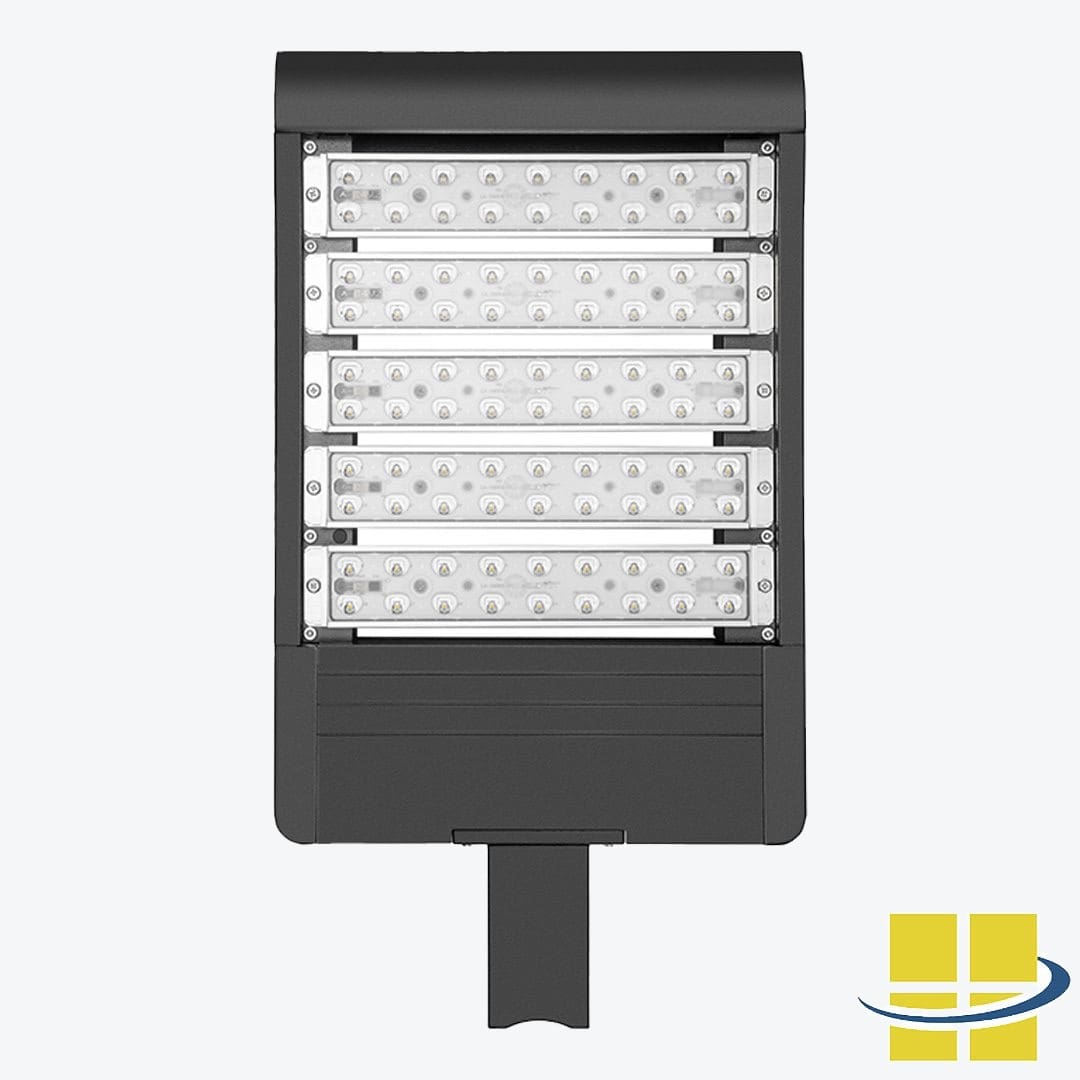
Additional Pickleball Court LED Lighting Resources
Conclusion
The surge in pickleball’s popularity has led to a significant increase in the construction of pickleball courts across various venues, from country clubs to community centers. As a result, proper pickleball court lighting has become essential to accommodate the growing number of players and extend playtime into the evening hours. Meeting the lighting standards set by the USA Pickleball Association, and adhering to local lighting ordinances ensures that players have a consistent and enjoyable experience. Advanced lighting solutions like the APTA LED sports lights provide the necessary illumination while minimizing light pollution and ensuring durability. As the sport grows in popularity, high-quality, compliant lighting will only become more critical.
Pickleball Court LED Lighting Frequently Asked Questions (FAQs)
You have Pickleball Court Lighting questions. We have answers. If you have a question that isn’t answered below, contact an Access Fixtures lighting specialist at (800) 468-9925 or click here to visit our customer service page.
What are the standard dimensions of a pickleball court?
A pickleball court measures 20 feet by 44 feet for both singles and doubles, with a minimum total playing surface of 30 feet by 60 feet.
Why is proper lighting important for pickleball courts?
Proper lighting ensures players can see the ball clearly, especially during evening games, enhancing the overall playing experience and safety.
What are the lighting requirements for pickleball courts?
Lighting should be supplied by luminaires mounted on 20-foot high poles, delivering an average of 30 footcandles (fc) with a max/min ratio of 2.0 or less.
What does a max/min ratio of 2.0 mean in pickleball court lighting?
It indicates extremely even lighting across the court, preventing dark spots and reducing the need for players’ eyes to adjust to varying light levels.
What are dark sky compliant light fixtures?
Dark sky compliant fixtures limit or eliminate up-light, protecting the night sky and reducing light pollution. These fixtures typically use LEDs with 3000 Kelvin or lower.
How can light trespass be minimized on pickleball courts?
Using appropriate LED optics and various shielding options, such as full shielding or individual LED shielding, can significantly reduce or eliminate light trespass.
What should be considered regarding pole height for pickleball court lighting?
While the standard height is 20 feet, local ordinances may require shorter poles. Advanced optics can compensate for shorter poles, but visibility for high arcs may be slightly compromised.
How can pickleball court poles be protected against high winds?
Poles should be designed to withstand high wind speeds, up to 190+ mph in some regions, and made from durable materials like galvanized steel or fiberglass composites to prevent rust.
What is the benefit of using APTA LED sports lights for pickleball courts?
APTA lights meet all USA Pickleball Association standards, offer superior optics, control spill light, and are durable with a marine-grade finish and extreme weather resistance.
Are APTA LED sports lights easy to maintain?
Yes, APTA lights feature modular construction, making them field repairable with easily replaceable parts, and they come with a 5-year warranty, extendable to 10 years.


